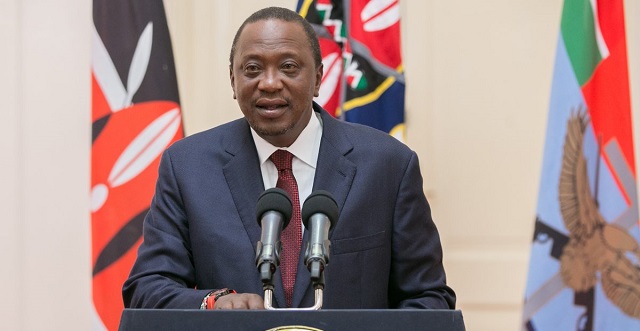
Nairobi, Kenya | AFP | Kenya’s Uhuru Kenyatta is due to be sworn in for a second term on Tuesday, an inauguration delayed by two disputed polls and a series of sometimes deadly street protests.
At the same time, opposition leader Raila Odinga has promised to hold a “memorial rally” honouring the more than 50 people killed, mostly by police, in four months of political upheaval that has left the country deeply divided.
Around 13 mostly African heads of state are expected to attend the ceremony at a Nairobi stadium where Kenyatta, 56, will be sworn in for his second and final five-year term.
His inauguration comes after Kenya’s Supreme Court validated his victory in last month’s rerun poll. However, the swearing-in may not draw a line under the country’s political crisis with Odinga vowing to fight on.
The electoral strife goes back to an August 8 poll that was annulled in September by the Supreme Court, citing “irregularities and illegalities”.
The court ordered a rerun in October that was boycotted by the opposition, handing Kenyatta a landslide of 98 percent of votes cast from just 39 percent of the electorate.
The disputed election season has split the country along ethnic and regional lines, although political violence has not reached the scale of that which followed a 2007 poll when 1,100 were killed.
Odinga, denied the presidency for a fourth time this year, believes that he was cheated and the 72-year-old has refused to recognise the result.
He has promised to found a “third republic” — following independence from Britain in 1963 and a new constitution adopted in 2010 — as well as to continue a programme of protests and economic boycotts aimed at undermining Kenyatta’s “dictatorship”.
The current political crisis draws on a deep well of social, ethnic and geographic grievances in the country of around 48 million people.
In areas loyal to Odinga, an ethnic Luo, there is a sense of having been ground down and discriminated against since independence, not least by Kenyatta’s Kikuyu group, which has given Kenya three of its four presidents.
The months of disruption and unrest, plus the holding of two separate elections, have badly affected the economy, hitting the poorest hardest while leaving the wealthy political elites relatively unharmed.
 The Independent Uganda: You get the Truth we Pay the Price
The Independent Uganda: You get the Truth we Pay the Price



